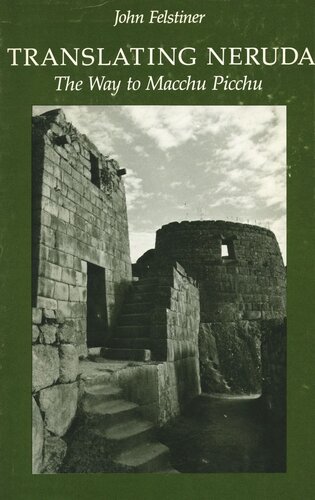

Most ebook files are in PDF format, so you can easily read them using various software such as Foxit Reader or directly on the Google Chrome browser.
Some ebook files are released by publishers in other formats such as .awz, .mobi, .epub, .fb2, etc. You may need to install specific software to read these formats on mobile/PC, such as Calibre.
Please read the tutorial at this link: https://ebookbell.com/faq
We offer FREE conversion to the popular formats you request; however, this may take some time. Therefore, right after payment, please email us, and we will try to provide the service as quickly as possible.
For some exceptional file formats or broken links (if any), please refrain from opening any disputes. Instead, email us first, and we will try to assist within a maximum of 6 hours.
EbookBell Team

5.0
70 reviewsWhat goes into the translating of a poem? Usually that process gets forgotten once the new poem stands intact in translation. Yet a verse translation derives from historical, biographical, and philosophical research, interpretive analysis of the original poem, and continuous linguistic and prosodic choices that parallel those the poet made. Taking as a text Pablo Neruda's brilliant prophetic sequence Alturas de Macchu Picchu (1945), the author here re-creates the entire process of translation, from his first encounter with the poem to the last shaping of a phrase that may never come right in English. This many-faceted book forms an essay on the theory and practice of literary translation, a study of Neruda's career through 1945, and an interpretation of his major poem, all of which lead to a striking new poem in English, Heights of Macchu Picchu, printed along with the original Spanish. This genesis of a verse translation also includes little-known biographical data, hitherto untranslated poems and prose from the years 1920 to 1945, and new translations of key poems from Neruda's Residence on Earth and Spain in My Heart.